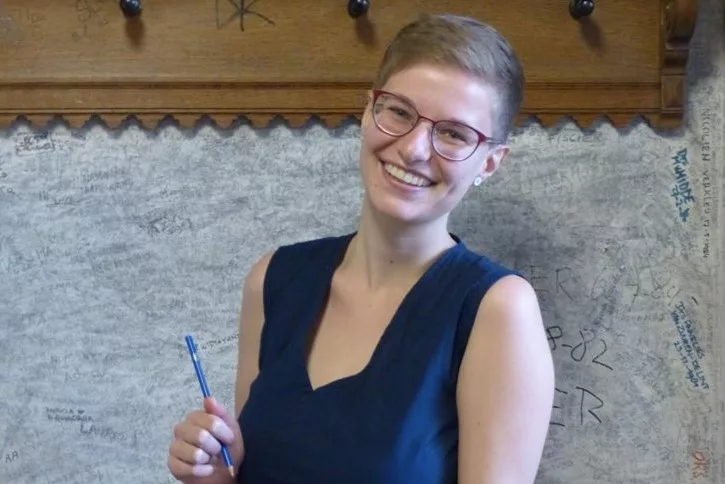On 28 May 2021 the Lova Marjan Rens Master’s Thesis Award 2021 was granted during an online award ceremony at the end of the Lova two-day webinar on Harassment in the Field. Fenneke Reysoo acted as chair of the jury, which was formed by herself together with Kathrine van den Bogert and Kim Knibbe. The jury had quite a task to select the three prize winners out of a total of fifteen Master’s theses that were submitted. We are proud to present below the three prize winners and their digital theses.

Hannah Schild was awarded the first prize. Her thesis “I am a woman. But in addition, I am a mother”: Women navigating politics, conflict and uncertainty in Zanzibar was written for her Research Master in African Studies at Leiden University, May 2020. The thesis builds on feminist scholarship on motherhood, mothering, and maternal thinking, and thoroughly discusses controversies in Western feminisms and the counter-reactions in African feminisms. The author coins the concept of ‘maternal navigation’ to explore maternal subjectivities, practices and strategies of Zanzibar women in relation to politics. The field research evolved in challenging conditions, but Swahili’s proficiency helped Hanna collect rich ethnographic data about women’s political activities or the absence thereof. The rather long period for analysis and writing – often underestimated – has contributed to the outstanding final result in which the author seamlessly analysed and reconnected the data to historical, reflexive and theoretical dimensions. “Thinking through ethnography” really applies to this thesis.
You can read Schild’s thesis here.

Maya Lane received the second prize for her thesis “It’s like a knife is plunged into me”: How good care is done for chronically painful vulvas, with which Maya completed her Master’s in Medical Anthropology and Sociology at the University of Amsterdam in August 2020. This thesis uses a materialist semiotic approach and builds on feminist anthropology and Science and Technology Studies to analyse practices of care for those living with chronic vulval pain, or vulvodynia. This disease is invisible and socially silenced and so far, incurable. Despite the Covid-19 pandemic, a number of interlocutors could be contacted for the research in addition to the analysis of the author’s “self in pain”. The thesis shows how “doing care” is situational, relational, complex, contingent and constantly moving. The thesis triggers a discussion and reflection on ‘good care’ for persons suffering from vulvodynia and proposes improvements in (bio)medical attendance of people suffering from this disease.
You can read Schild’s thesis here.

Sinine Nakhle won the third prize for her thesis The platformization of queer solidarity: Re-defining space in post-protest Lebanon, written for her Master’s degree in Humanities, Leiden University, June 2020. The thesis questions the role of digital space to enhance solidarity and activism of the queer community in Beirut, Lebanon. The research was focused on the content and interactions of two queer activist and artistic Instagram accounts; one of which was created by the author herself. In spite of the rather challenging forms of social injustice that queer people living in Beirut encounter, the conclusive argument is that the digital platforms are mobilisations in flux, creative, and imaginative which provide executoires for current as well as future generations. The findings, convey hope and optimism.
You can read Nakhle’s thesis here.